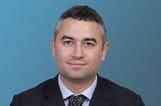U.S. sanctions impacting Lebanese businesses and individuals
Related people




Ken Rivlin
Partner, Global Co-Head Environment, Climate and Regulatory Law Group and the International Trade Group
New York

Maura Rezendes
Partner
Washington, D.C.

Kuang Chiang
Senior Counsel
Washington, D.C.

Nick Ognibene
Associate
Boston

Khalid Garousha
Managing Partner
Abu Dhabi

Yacine Francis
Partner
Dubai

Anthony Traboulsi
Partner
Dubai
Headlines in this article
Related news and insights
Publications: 27 March 2024
Increased Focus on Forced Labor in the U.S. and EU: Enforcement and Legislation
Publications: 07 March 2024
Maura Rezendes speaks to Financier Worldwide on sanctions compliance and enforcement
Publications: 28 February 2024
Publications: 27 February 2024
U.S. Imposes New Sanctions and Export Controls Targeting Russia
On April 4, 2023 the United States imposed sanctions on two Lebanese businessmen, brothers Raymond Zina Rahme and Teddy Zina Rahme (the Rahme Brothers), and three of their owned companies, ZR Energy DMCC, ZR Group SAL Holding, and ZR Logistics SAL (the ZR Companies).
Given the Rahme Brothers’ and ZR Companies’ business holdings and substantial involvement in the Lebanese economy, the impact of these sanctions are significant and will impact companies right across the Lebanese economy. Any persons engaged in any business dealings with or otherwise involving the Rahme Brothers, the ZR Companies, or any companies owned by any of the foregoing will risk violating U.S. sanctions or becoming sanctioned.
Background
On April 4, 2023, the Office of Foreign Assets Control (OFAC) of the U.S. Department of the Treasury sanctioned the Rahme Brothers and the ZR Companies. OFAC designated the Rahme Brothers and the ZR Companies on the List of Specially Designated Nationals and Blocked Persons (SDN List, and persons thereon, SDNs). Pursuant to OFAC’s 50% Rule, any entities owned 50% or more, directly or indirectly, by the Rahme Brothers and/or the ZR Companies (and/or one or more other SDNs) (such entities, together with the Rahme Brothers and the ZR Companies, collectively the New Lebanese SDNs) are subject to the same sanctions as the Rahme Brothers and the ZR Companies themselves.
As a result, as of April 4, any business dealings or other transactions with or for the benefit of any of the New Lebanese SDNs will create serious risk of violating U.S. sanctions or becoming targeted by U.S. sanctions.
U.S. Sanctions Overview
OFAC designated the Rahme Brothers and the ZR Companies as SDNs pursuant to Executive Order 13441 (EO 13441) under the International Emergency Economic Powers Act and the National Emergencies Act. In addition, any entities owned 50% or more, directly or indirectly, by one or more SDNs are subject to the same sanctions. OFAC targeted the Rahme Brothers because OFAC determined that they had “used their wealth, power, and influence to engage in corrupt practices that contribute to the breakdown of the rule of law in Lebanon, thereby undermining Lebanon’s democratic processes to the detriment of the Lebanese people”. OFAC further designated the ZR Companies because OFAC determined that such companies are owned or controlled by, directly or indirectly, the Rahme Brothers.
As a result, the New Lebanese SDNs are subject to far-reaching property restrictions. The property and interests in property in the United States or within the possession or control of US persons of the New Lebanese SDNs are blocked (i.e., frozen), and may not be transferred, paid, exported, withdrawn, or otherwise dealt in. U.S. persons are prohibited from making or receiving any contribution or provision of funds, goods or services to, or for the benefit of, any person targeted under EO 13441. As such US persons are generally prohibited from engaging in any dealings with or for the benefit of the New Lebanese SDNs.
Finally, EO 13441 authorizes additional sanctions against any persons deemed to have materially assisted, sponsored, or provided financial, material, or technological support for, or goods or services to or in support of, any person sanctioned under EO 13441. As a result, any non-U.S. person that engages in any dealings with or for the benefit of any of the New Lebanese SDNs risks becoming sanctioned in the same manner.
Key Risks
The Rahme Brothers and the ZR Companies play substantial roles in the Lebanese economy, including in fuel imports, energy, telecommunications, and aviation. The impact of these designations may therefore be significant to any corporates, financial institutions, and other entities throughout the Lebanese economy.
Lebanese and other businesses should carefully evaluate existing relationships with any of the New Lebanese SDNs. Any dealings with or involving any of the New Lebanese SDNs which involve any kind of U.S. nexus could violate, or cause a violation of, U.S. sanctions. As U.S. sanctions are administered on a strict liability basis, this could be true regardless of actual knowledge or due diligence exercised.
Note that the risk remains even with respect to dealings involving a New Lebanese SDN that was not itself designated by OFAC. Even where there may be no public indication that a Lebanese company is sanctioned, if it is ultimately 50% or more-owned by one or more of the Rahme Brothers and/or ZR Companies, it is sanctioned as well.
Regardless of any U.S. nexus, any Lebanese or other businesses that transact with or for the benefit of any of the New Lebanese SDNs in any manner will risk being targeted with sanctions themselves, and subject to the same restrictions as those imposed on the New Lebanese SDNs.
Key risks include:
- Banking relationships with the New Lebanese SDNs;
- Provision of financing to, or for the benefit of, the New Lebanese SDNs;
- Dealing in the services of the New Lebanese SDNs; and
- Providing goods or services of any kind to, or receiving any goods or services from, the New Lebanese SDNs.
Note that the risk of any of the foregoing may be increased where USD or other U.S. nexus is involved, though this risk cannot be eliminated by avoiding any U.S. nexus.
Also, Lebanese and other businesses that have financing arrangements from, or other relationships with, financial institutions and other businesses in the U.S. or other countries worldwide may violate sanctions provisions in underlying contracts to the extent they engage in any ongoing relationships with the New Lebanese SDNs of any kind.
Finally, any businesses or individuals linked to the New Lebanese SDNs may face elevated risk of becoming sanctioned in the future. This could occur at any time, without warning, and – as with the New Lebanese SDNs – may not be accompanied by any kind of wind-down license from OFAC. Lebanese and other businesses should thus carefully evaluate ongoing relationships with the New Lebanese SDNs or affiliated persons, and continue to closely monitor any developments.
How Allen & Overy Can Help
Allen & Overy’s experienced U.S. sanctions team can assist Lebanese and other businesses in:
- Evaluating risk exposure under U.S. sanctions arising from direct or indirect relationships or dealings with the New Lebanese SDNs;
- Advising on risk of violating, or becoming targeted by, U.S. sanctions, and best means of reducing risk while minimizing impact to ongoing business operations;
- Preparing risk-based policies and procedures to mitigate ongoing risk;
- Training directors, officers, managers, and employees in sanctions risk mitigation;
- Preparing contractual language to use with counterparties to reduce risk of indirect exposure to the New Lebanese SDNs from suppliers, customers, and other third parties;
- Assessing and managing contractual sanctions obligations in financing and other agreements; and
- Assisting with any contact from OFAC or other US government entities in relation to the New Lebanese SDNs or other US sanctions matters, including requests for information or subpoenas.
If you have any questions or would like to discuss these matters in greater depth, please reach out to any of the contacts at Allen & Overy listed.